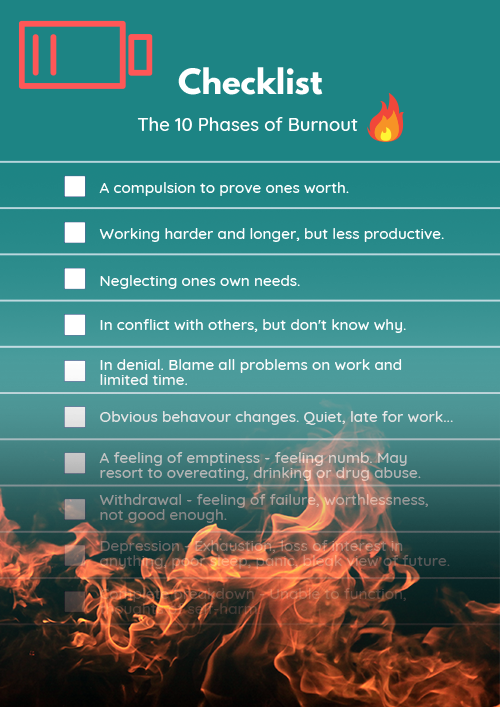Ten solutions for ten potential problems
One – What if I little or not relevant work experience?
You may be applying for a job, but have lack of experience, because you may be newly qualified. It is important to make the most of what you have got.
When it comes to the structure of your CV, you need to lead with your education and qualifications. This is going to be your biggest selling point.
Following this, you should pick out skills you’ve acquired during your studies at school or university. You should feature these as bullet points within a Key skills section. This should follow the Education and qualifications section.
If you have done any work experience, which may have helped fund you through university or college, you should still mention this. Some workplace experience is always better than none.
You are also entitled to expand the Interests and activities section to include, for example, roles of responsibility you held in societies or clubs, volunteer work, etc.
Another reason for lacking experience is that you have quite simply decided to you wish to change career path.
Two – What if my current job isn’t relevant to the job I am now looking for?
If you’re trying to change career path then this will be one occasion where you might very well be better served by a functional CV.
First of all you need to declare your future career intentions in an appropriately phrased Objective. This will help to avoid any confusion on the part of the reader.
Your previous experience might not be directly relevant but you should still present it in the best possible light. Try to focus on the transferable skills and abilities that you have developed by making use of a Key skills section and Key experience section.
Your circumstances may be such that you are keen to apply for work in an industry or sector in which you used to work, but have departed from in your recent employment history.
In this sort of situation it is advisable to separate out the different types of experience, for example instead of one section of Key experience you could have a section on Banking experience for example, followed by one on Retail experience.
Three – What if there are gaps in my career history?
Unexplained gaps in your employment record can raise concerns in the minds of recruiters. They may think you have something to hide. Many recruiters will draw their own conclusions and reject your application.
A useful tactic, which I have mentioned preciously is within your Career history to list years, not months. This doesn’t always work, but if you have large gaps, it is worth a try.
Naturally, if you have a gap as a result of voluntary work, self-employment, or freelance work, this does not really count as a gap. Other common and
justifiable reasons include raising a child, caring for another dependant and travel.
There are also reason that are likely to be viewed negatively, which include inability to find a suitable position, ill health and imprisonment.
If you can explain the gap in your career positively, it is advisable to provide a brief explanation.
Four – What if I have changed jobs far more frequently than the average?
Getting through a large number of jobs in a short period of time can ring alarm bells in recruiters’ heads. They may conclude that you are not capable of committing yourself or of maintaining your focus.
However, there may be a number of reasons why you have changed jobs so frequently. Explaining the reasons isn’t important; the key is to emphasise what you have learned and what you now able to offer an employer as a result of this breath of experience. Highlight the diversity of the organisations you worked for and, therefore, the variety of skills which you acquired as a result.
Implement of Key skills section highlighting the transferable skills you have developed during the course of your career – administrative, organisation, interpersonal, etc.
You should then proceed to a Key experience section, citing specific xamples to support what you have said in the Key skills section.
You should conclude with a Career summary rather than a full Career history.
Only include information that’s in your favour and leave out information that isn’t. Taylor your CV to suit the job that you’re applying for.
Five – What if I’ve been with the same organisation for me entire career?
There are both positive and negative ways in which a recruiter will view candidates who have worked for the same organisation for all, or the majority of their career. Whilst some people may see this as a reflection of commitment and loyalty, others may see it as a sign that the person is not keen on change, or has, for whatever reason, been unable to change.
Personally, I don’t think this poses too much of a problem. There are many top executives who have been with the same organisation for their whole career and worked their way up from the bottom.
Six – What if I am overqualified for the role for which I am applying?
This is not a very common situation, but one that certainly does arise. However, it is becoming more popular as people take a step back from their career for personal reasons – for example to achieve a better work-life balance.
Being overqualified for a position is a significant hurdle, as employing such an individual can pose a major risk to an employer. Are you desperate and prepared to take any job going whether you are really interested in it or not? Are you going to be disappointed with the role and move on quickly? Are you going to cause problems in the hierarchy?
The usual rule with CV writing is, of course, ‘if you’ve got it, flaunt it!’ However, in this situation, the secret is to downplay your qualifications. Make them less prominent.
If you’re overqualified by virtue of your academic qualifications, then you should make sure that you place your Career history before your Education and qualifications.
It’s all a matter of getting the pitch right. If you’re going for a particular job, make sure your CV reflects this and doesn’t give the impression that you’d rather be doing a different job.
Seven – What if I am underqualified for the role for which I am applying?
Being underqualified for a role is very different from being overqualified.
If you do not have the required qualifications and experience, there is really very little point in applying for the role. I have received CVs from candidates applying for a role as a qualified Lawyer, who have freshly graduated from university. You can be absolutely sure that there will be candidates that will meet the criteria and you won’t be able to compete with them. It’s a very competitive job market out there.
There are exceptions. If you only miss the criteria by a small amount, it may still be worth applying. For example a job advert may be asking for a HR Adviser who is CIPD qualified and 2 years experience in HR. You may have HR experience within a different role and be part way through your CIPD.
Eight – What if I have been dismissed from a previous position?
If you were dismissed for gross misconduct, you shouldn’t take up valuable space on your CV explaining your reasons for leaving your job. That space can be better spent incorporating additional sales points.
Whilst you do need to mention the reason on your CV, you may find yourself having to explain this at an interview. There is advice on how to deal with this:
• You must be truthful: this will usually come out anyway.
• Convey the circumstances as calmly and dispassionately as possible, acknowledge responsibility for the causes of your dismissal and, above all else, convince the interviewer that you learned a great deal from the experience and this will never happen again.
Nine – What if I have been made redundant?
The important thing to always remember, is you will not have been made redundant because of anything you have done. I completely understand that it may feel personal and your confidence can be affected as a result.
However, you shouldn’t need to make any mention of the reason on your CV. The subject may come up at interview. However, you must conceal any bitterness and resentment towards your former employer. I provide coaching on how to handle this and rebuild your confidence following a redundancy.
Ten – What if I am worried that my age may count against me?
This should not count against you. You will be protected by the Equality Act 2010. However, we all know the reality is that discrimination persists regardless of such legislation and the last thing you want is for your age to be a stumbling block when it comes to getting an interview.
Don’t let your age put you off. Instead concentrate on the wealth of experience you have to bring to the role. You’ve spent a lifetime learning and developing your skills.


